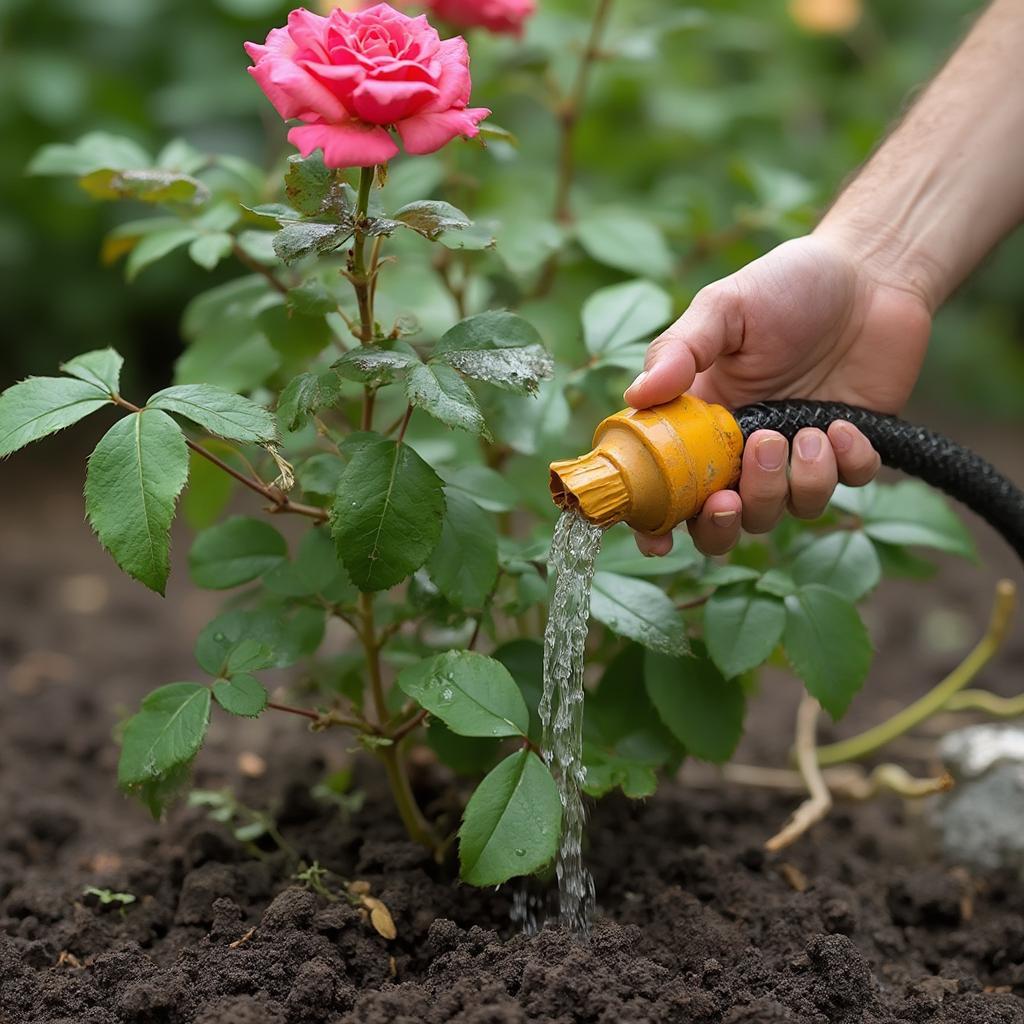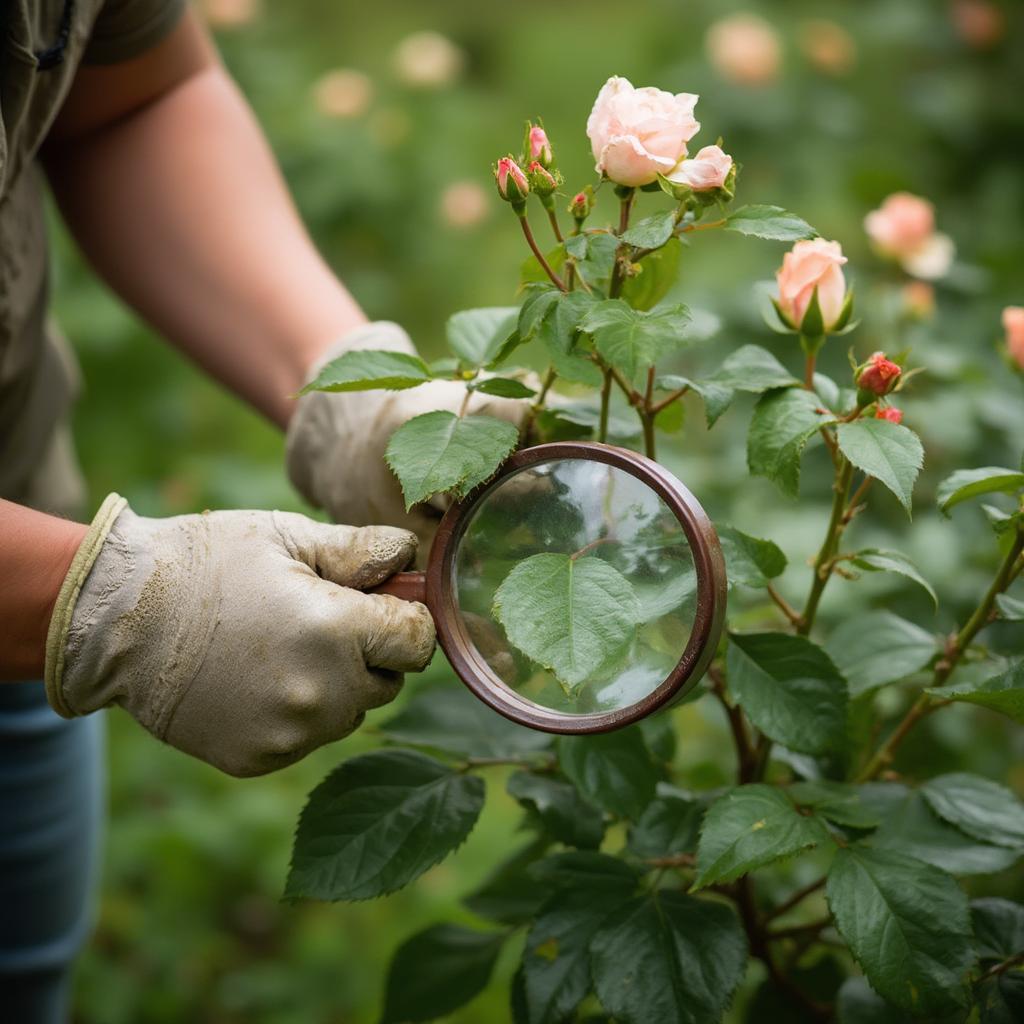Your cart is currently empty!

Essential Tips for Flower Care Roses
Roses, with their timeless elegance and captivating fragrance, are a cherished addition to any garden or home. However, these beautiful blooms require specific care to thrive. Mastering the art of rose care ensures vibrant, long-lasting flowers, rewarding your efforts with abundant beauty. This guide provides expert Tips For Flower Care Roses, covering everything from planting to pruning and pest control.
Understanding Your Rose’s Needs
Roses thrive in well-drained soil and require ample sunlight – at least six hours a day. Water deeply and regularly, especially during dry periods, but avoid overhead watering, which can promote fungal diseases. Choosing the right location for your roses is crucial. A spot that receives morning sun and afternoon shade is ideal in hotter climates, preventing the delicate petals from scorching. Soil pH is also an important factor. Aim for a slightly acidic pH of 6.0 to 6.5.
Planting and Feeding Your Roses
Whether you are planting bare-root roses or potted roses, proper planting is crucial for their long-term health. Dig a hole deep and wide enough to accommodate the roots, and amend the soil with organic matter. For bare-root roses, create a mound of soil in the center of the hole and drape the roots over it, ensuring the bud union is just above the soil surface. Backfill the hole with soil, firming it gently around the roots. Water thoroughly after planting. Roses are heavy feeders and require regular fertilization. Use a balanced rose fertilizer according to the package directions, typically every four to six weeks during the growing season.
What kind of fertilizer should I use for my roses? A balanced fertilizer specifically formulated for roses is recommended. These often contain a higher phosphorus content to promote blooming.
Watering and Pruning: Key to Healthy Roses
Consistent watering is essential for healthy roses. Deep watering encourages deep root growth, making the plants more drought-tolerant. Avoid shallow watering, which can lead to surface roots that are more susceptible to drying out. Pruning is another critical aspect of rose care. It encourages new growth, improves air circulation, and removes diseased or dead canes. Prune your roses in late winter or early spring, before new growth begins. Remove any crossing or rubbing canes, and cut back the remaining canes to about one-third of their height. Make clean cuts at a 45-degree angle, just above an outward-facing bud.
 Watering rose bushes correctly to ensure deep root growth
Watering rose bushes correctly to ensure deep root growth
Similar to tips on driving an automatic car, proper technique in watering is crucial. Just as understanding gear shifting in an automatic car ensures a smooth ride, mastering the art of watering ensures healthy, vibrant roses.
Protecting Your Roses from Pests and Diseases
Roses are susceptible to various pests and diseases, including aphids, black spot, and powdery mildew. Regular inspection is crucial for early detection and treatment. Aphids can be controlled by spraying them with a strong stream of water or using insecticidal soap. Black spot and powdery mildew are fungal diseases that can be prevented by ensuring good air circulation, avoiding overhead watering, and applying fungicides as needed.
How can I tell if my roses have a disease? Look for signs such as black spots on the leaves, powdery white coating, or distorted growth. If you notice any of these symptoms, consult a local garden center for appropriate treatment.
 Inspecting a rose bush for pests and diseases
Inspecting a rose bush for pests and diseases
Automatic car driving lessons tips can be likened to learning the nuances of rose care. Both require patience, attention to detail, and a willingness to learn. Just as mastering the controls of an automatic car leads to confident driving, understanding the needs of your roses leads to a thriving garden.
Conclusion
Caring for roses may seem daunting at first, but with these essential tips, you can cultivate a beautiful and thriving rose garden. From proper planting and watering to regular pruning and pest control, each step contributes to the overall health and vibrancy of your roses. By following these tips for flower care roses, you’ll be rewarded with abundant blooms and the enduring beauty of these classic flowers.
FAQ
- How often should I water my roses?
- What is the best fertilizer for roses?
- When should I prune my roses?
- How can I prevent black spot on my roses?
- What are some common rose pests?
- How do I treat powdery mildew on roses?
- How deep should I plant my rose bushes?
For further assistance, you can explore these helpful resources: automatic transmission car driving tips, tips in driving an automatic car. The concept of regular maintenance, like changing the oil in a car, applies to roses as well – consistent care leads to optimal performance.
If you need additional support, please contact us via WhatsApp: +1(641)206-8880, Email: [email protected] or visit our office at 456 Pine Avenue, Toronto, ON M5V 2J4, Canada. Our customer service team is available 24/7. You might also find these articles helpful: automatic car driving lessons tips, and 4 tips for driving an automatic car. Like learning to drive an automatic car, caring for roses is a skill that can be mastered with practice and the right guidance.

Leave a Reply